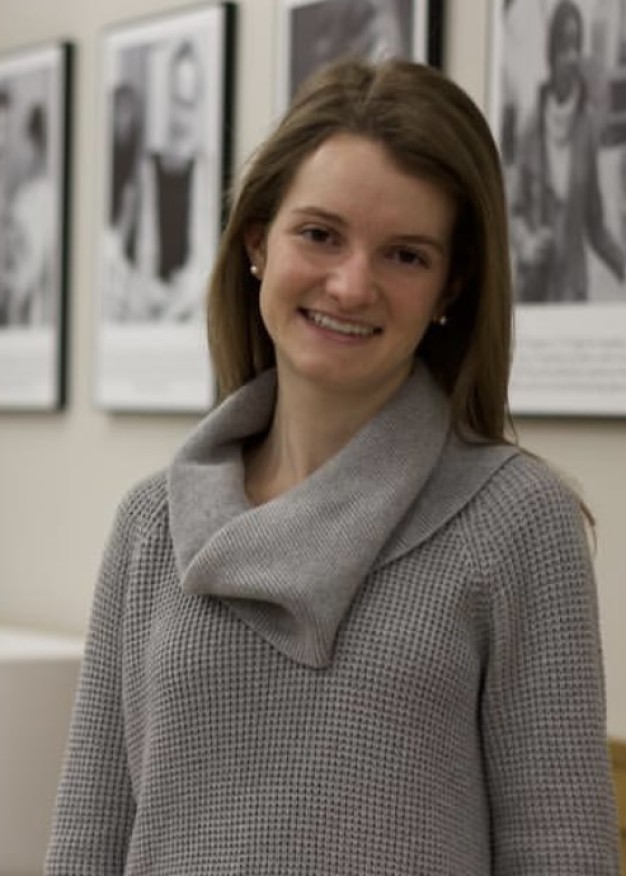Featured Fellow: C.C. Borzilleri (2023-2024 Edward Carter II Short-Term Fellow)
The Library & Museum at the American Philosophical Society supports a diverse community of scholars working on a wide-range of projects in fields including early American history, history of science and technology, and Native American and Indigenous Studies, among others. Read on to learn more about some of our fellows and their research at the APS. Additional information about our fellowship programming and other funding opportunities can be found here.
Briefly describe your research project.
My dissertation explores the lives of women who printed and published newspapers in the Revolutionary and Early American Republic periods. I am especially interested in questions of authority—both technical and theoretical. When, where, and how did women gain the skills, and the social acceptance, to engage successfully in careers in print? As most of these women were widows of printers who had previously established careers and networks, to what extent did they rely upon that existing foundation, or how did they diverge and forge their own styles of management and publication? What do their careers reveal about women’s abilities to influence and engage in public events during this period?
What collections did you use while working at the APS?
With Philadelphia being one of the print trade’s main hubs during the early American period, there were seemingly endless collections that related to my research. Unsurprisingly, Benjamin Franklin was central to many of these collections. His grandson, Benjamin Franklin Bache, founded a newspaper in Philadelphia in the early 1790s that was later continued by his widow, Margaret Hartman Markoe Bache, and editor William Duane.
I also used the Jane Aitken Papers. Aitken was another Philadelphia-based printer working during the Early American Republic period. The collection not only includes her own professional work, but interactions with other widows serving as printers, including Elizabeth Sparhawk.
It’s also always exciting when documents lead me to unexpected places. Most recently, I’ve ended up diving into the Alien and Sedition Acts after finding a case brought against a woman printer. The APS has a wonderfully robust set of pamphlets, broadsides, and published books on these Acts which helped me gain a better understanding of how contemporaries interpreted the development of the legislation and subsequent legal cases.
What’s the most interesting or most exciting thing you found in the collections?
Pairing the correspondence of the Bache and Duane family members with the published issues of the Aurora was a huge step for gaining a better understanding of the dynamics that produced the paper. One key moment came in early 1799, when Margaret Hartman Markoe Bache received a series of letters from the paper’s compositors demanding higher wages for their work. Playing out in a written back-and-forth among Bache, her editor William Duane, and this group of men working on the paper, the labor dispute reveals the web of dependencies that the paper was based upon. It seems that both Bache and Duane blamed the other when speaking directly with the workers. Duane claimed that as only the editor, rather than owner or publisher, he must defer to Bache’s authority. Bache, meanwhile, said that she had nothing to do with the daily operation, which fell to the editor. It is unclear whether or not the wages increased, but the paper does continue publication uninterrupted during and after the conflict. And just a few weeks later, the Aurora published a series of articles accounting for a similar labor dispute among local shoemakers. As I interpret events across newspapers run by women, this particularly interesting example makes me wonder the extent to which women intentionally leveraged their gendered positions. Did Bache rely in part upon a gendered explanation for her distance from the daily operations? It is otherwise documented that she was in fact quite involved in the content of the paper, so perhaps she conveniently demurs on the basis of being out of her depth in such a professional matter?
Do you have any tips or suggestions for future fellows or researchers?
I’m not sure I have any specific suggestions besides encouraging any and all researchers to take full advantage of the APS! My month on site was a phenomenal way to further my dissertation work, and I am so grateful to everyone for making it such a productive and enjoyable time.
C.C. Borzilleri is a PhD candidate in the history department at George Washington University, focusing on women and print culture in the early American republic. Her dissertation project examines the lives of women who printed and published newspapers and other print materials from roughly 1780 through 1830 with an eye towards the sources of their authority and the blending of public and private spaces and networks.

